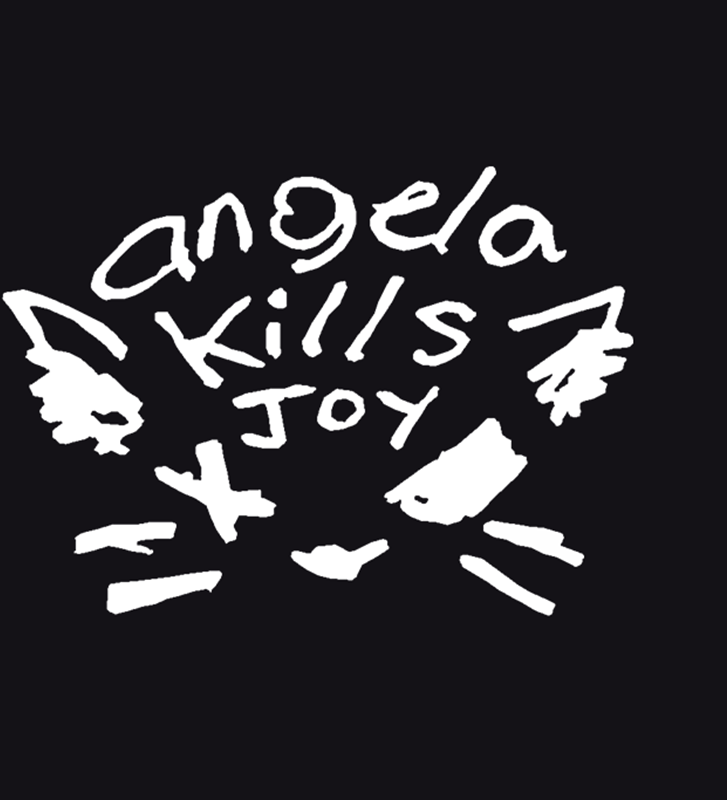
| music | lyrics | shows | pics | contact |

This serves as an archive to the recordings I made over the summer of 2025. I decided to rerecord Made Up, an EP that was released in december 2023, and 4 other songs that were released in the following years.
I started recording demos in August of 2024, when I planned to record what would become the Waste EP. One year later, after starting everything over again, I (almost) finished these 8 tracks.
| SONG | BASS | GUITARS | VOCALS | [ TOTAL ] |
| DIE ANYWAY | 0:40 | 1:10 | 1:05 + 1:00 | 3:55 |
| SACRIFICE | 0:40 | 0:30 | 1:00 + 1:20 | 3:30 |
| MORUE | 1:15 | 1:15 | 0:55 + 1:10 | 4:35 |
| LUCKY | 0:50 | 1:00 | 1:10 + 1:15 | 4:15 |
| CHAMBER | 2:00 | 1:05 | 1:00 + 1:00 | 5:05 |
| SAVE ME | 1:00 | 2:20 | 1:05 + 1:15 + 1:15 | 5:55 |
| WHEN YOU DIE | 0:35 | 1:15 | 0:45 + 1:10 | 3:45 |
| SARDENED | 1:00 | 1:45 | 0:30 + 1:20 | 4:35 |
| [ TOTAL ] | 9:00 | 10:20 | 18:15 | 35:35 |
The recordings took about 1.5 month, from July 13th to August 27th. Drums were already programmed and only some details had to be reworked.
The GUITARS field only includes distorted and clean rhythm guitars. Solos were recorded over a 4-5 days period.
Two years ago, recording a single guitar track would take 2 to 3 hours. Now, I can record double tracked rhythm guitars in less than an hour if I know the song well, which was the case for some of these re-recordings.


At the time of Made Up, I used to record short sections over and over again until the result was satisfying. This time, I recorded multiple takes of the entire song, focusing more on the tricky sections, until I considered the number of takes to be sufficient. Then, I roughly went through each take to assemble a final track, made of the best takes.
Sorting tracks was quite long, especially for complex songs like Sardened and Save Me, which both require really tight playing. It took around 1:30 hour to sort the Sardened guitars, not including the time spent editing to create the "glitchy" sounds. At some point, I decided to only use takes that worked fine instead of trying to find the best take.
Bass tracks took about 15-20 minutes to sort, and guitar tracks about 30-40 minutes. Solos from Save Me took 1:20 hour to record, and about 2 hours to sort. The sorting part takes time that can easily be underestimated.
Most songs were recorded with an Aria Pro II Cardinal Series tuned in C standard with 12-48 strings. Other songs in standard tuning were recorded with a Cort guitar and a borrowed Les Paul. Most solos were recorded using a borrowed Variaxx guitar.
An emulated Marshall-type Lion '68 amp was used with three pedals (from guitar to amp): a Boss Noise Suppressor NS-2, an Archer clean booster (different from the Tone City Bad Horse overdrive that is used live), and a Boss Metal Zone MT-2 distortion.
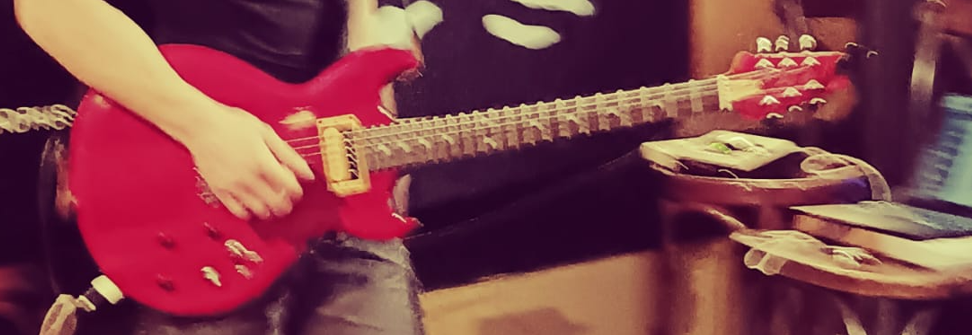
The cabinet is the basic Ableton 4x12 cabinet plugin with a dynamic microphone. I tried using a microphone placed near an physical cabinet to record the guitars, but couldn't really find the sound I wanted.
At first, I wanted to replicate the sound of "metal" presets of practice amps I have been using before. These were comparable to Peavey or Mesa Boogie amps that can be heard in a lot of 2000's nu metal. I used cabinet IRs that could emulate them, and tried "scooping the mids" on the Metal Zone, to no success. In the end, I decided to a tone closer to the current live sound.
Bass was recorded with a model close to a Squier Precision Bass, using a Hotone Nano Legacy Thunder Bass mini-amp. It was recorded in standard tuning, then downtuned using Logic Pro's detuner. Perhaps using a real C standard bass would produce a better sound next time.

Vocals training started on July 13th, and I would practice each song one by one. I started recording real vocal takes on the 28th with Sacrifice.
5 different vocal tracks are layered in each song: main, secondary and tertiary (a bit quieter in the mix), and two slightly panned takes (about the same volume as takes 2 and 3). I liked the chorusy effect that multiple overlaid vocals can create, like in the demo of When You Die. The downside is it makes the overall vocals lose some intelligibility, making the lyrics harder to understand.
At the time of recording Made Up, I had never played the songs live before recording them. I practiced the vocal parts only 1 or 2 days before laying down the final takes. Since then, I got to play every song live at least once (except Morue). For these new sessions, I knew the songs, I knew how I wanted them to sound and I "only" had to polish the interpretation.
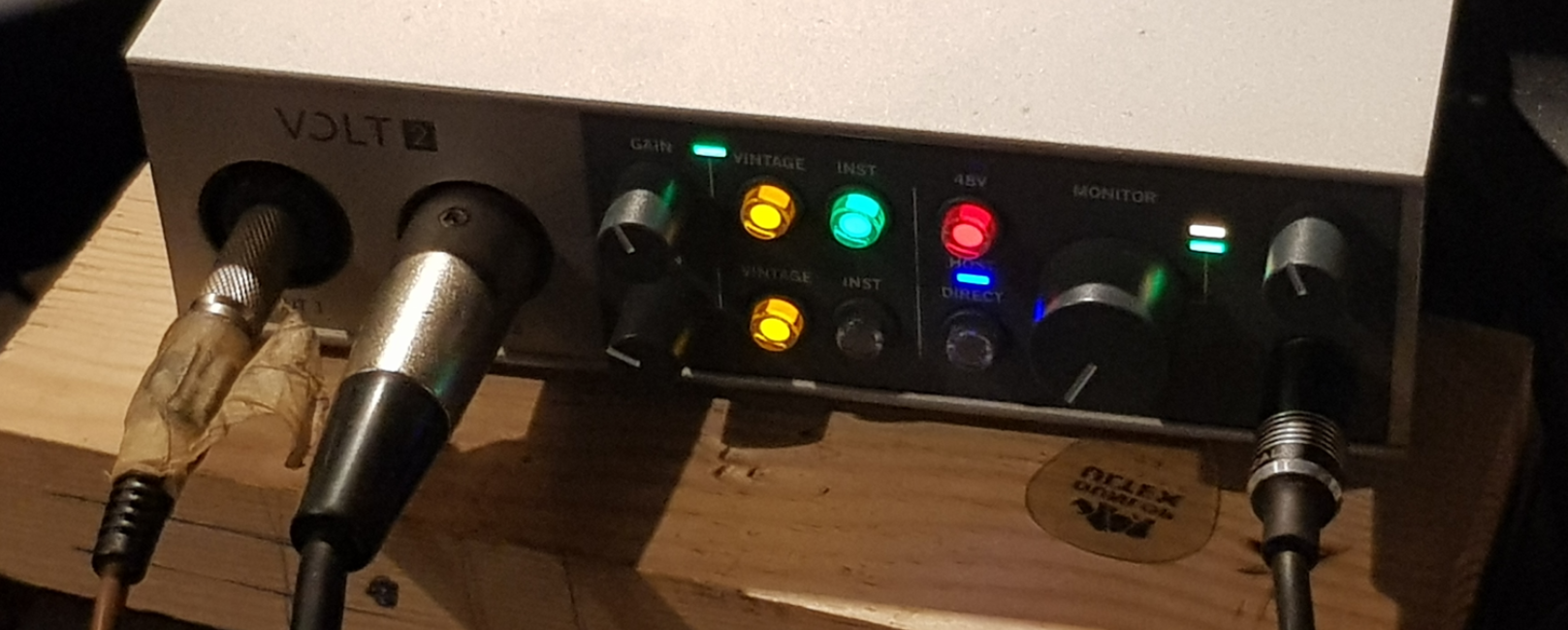
I used a method called "thinking you can do better if you try again (and usually being right)". This means that vocals take 2 days to record: the 1st day is used as reference/training, and the 2nd day (usually the following day) aims to beat the best takes from the previous day. And every time, the 2nd day turned out to have better takes than the first. I was more aware of what I was doing wrong, and this helped to correct mistakes.
It turns out that maybe a 3rd or 4th day would have been useful. Near the end, I still wasn't sure about some vocal tracks, like Sardened. So I spontaneously decided to do them again one evening, and basically beat the two first sets of takes (days 1 and 2) in about half an hour.
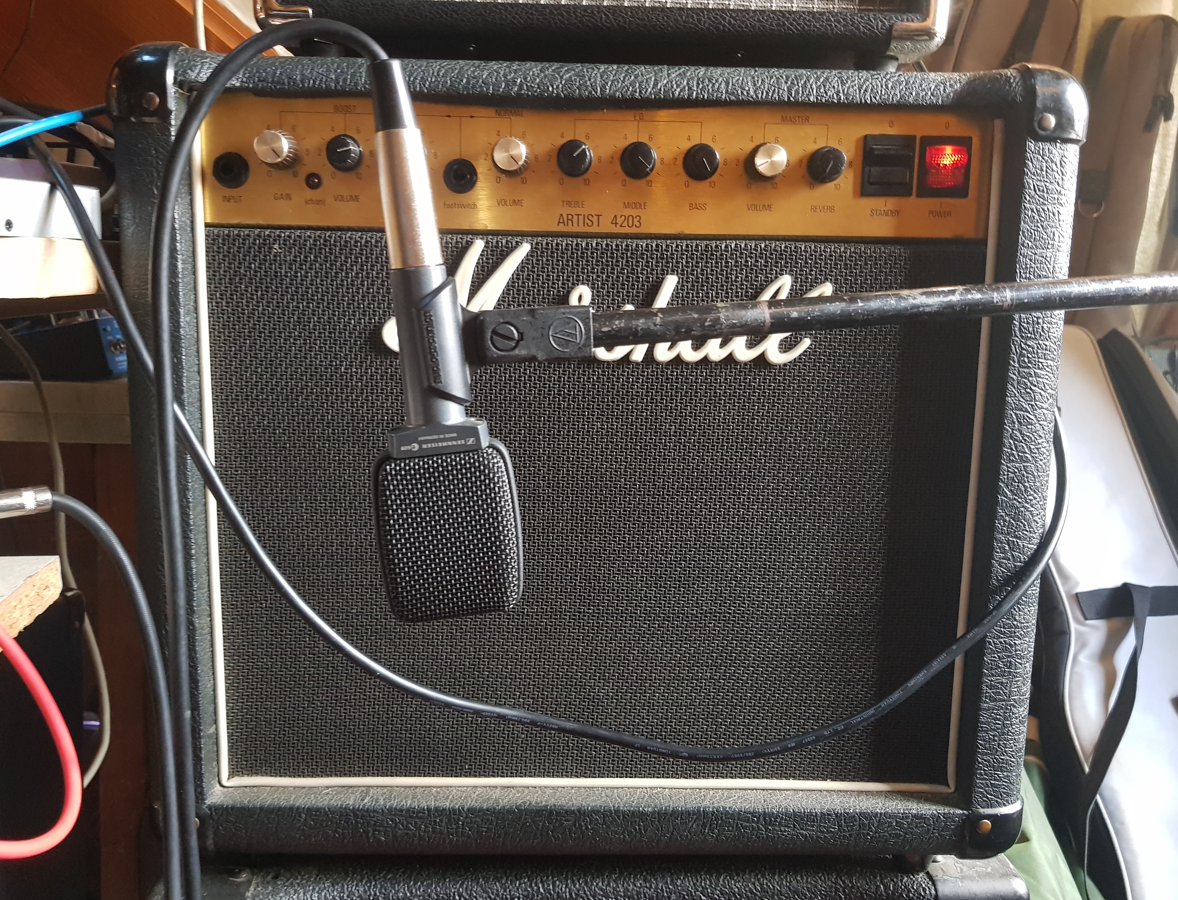
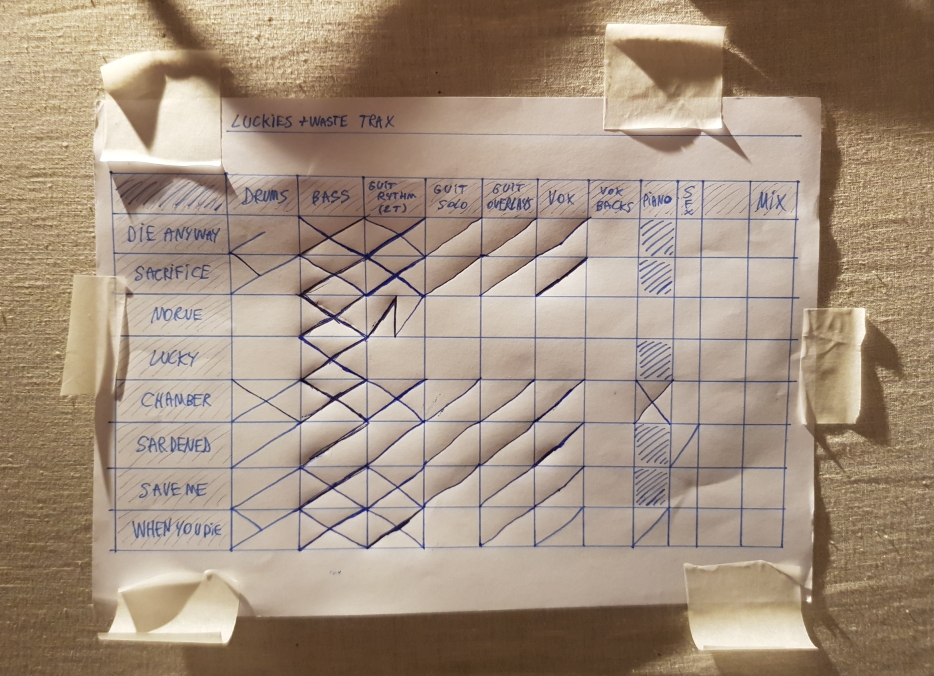
Since the schedule was a bit tight, I had to sing almost every night, for up to 5 or 6 days in a row. I allowed myself 8 to 10 tracks to record takes, in order to make the sorting part faster.
Sessions usually lasted about 1 hour. Longer sessions only happened in case of a lack of good takes, or if I was looking to obtain raspiness in the voice by pushing it for longer. I rested 2-3 minutes between sets of either recording the entire song in one take, or doing 2-3 takes of a specific section.
I used to spend up to 2 hours sorting vocal takes. Now, I think it can take at most 1 hour if there are only a few (under 10) takes. I usually started by listening to the 2nd day takes, and then if there were too few good takes, I would look into the 1st day takes.

I also experimented with alternative tonalities. I was aware that some songs were too high for my voice, so I tried pitching them down to see if it would fit better. This has happened before Made Up: I had songs in E standard tuning, and I realized they fit better in D standard (-1 step). Then, I detuned again to C standard (-2 steps), and it fit even better. For this reason, it became the main live tuning.
In the end, I only changed the pitch of Morue (-1/2 step) and Lucky (+1 step). Maybe I could have removed half a step from Chamber too, but there was a tradeoff between intensity and how easy the song is to sing.
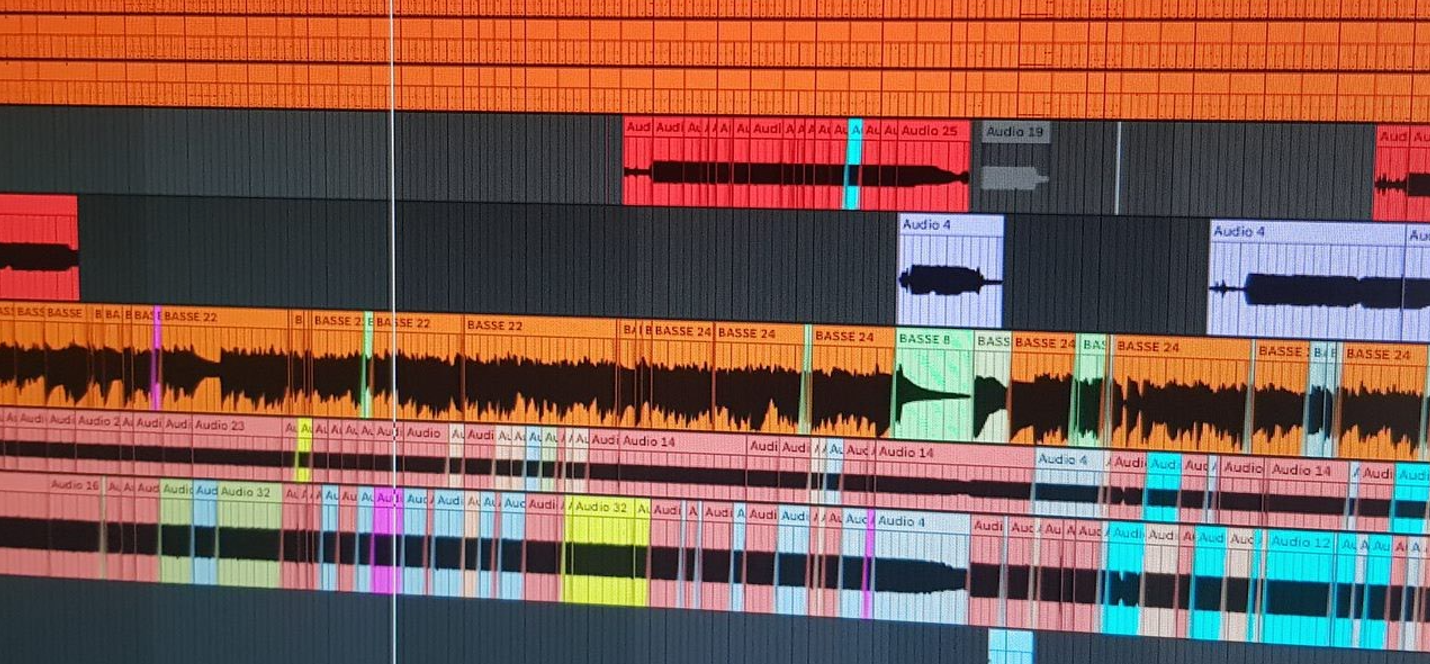
Here are some "behind the songs" notes, for whoever cares but especially for myself to remember.
The idea was to create a song that I could open a show with. It had to be short, powerful and straight to the point. I found the chords from some math rock video, and felt a weird nostalgia in them. This is still one of my favorite chord progressions.
The original version started with a longer progressive intro, fading in and reusing the "solo" riff of the end.
It is mostly about that state of having to "sacrifice" other activities in order to succeed in studies, and the effects that come with it.
This one started as an acoustic song. I kept coming back to it, singing it a bit differently every time and finding new ideas, until I finally decided to record a demo. The solo was probably added at that time. The original name was "All Gonna Die", but I changed it to a cooler name.
It might be the oldest of the 8 songs. The demo version had a weird noisy intro, that I decided to replace with the more powerful way the song starts live. I like to open or close a show with it.
Lyrically it's kind of simple, but it's a personal song to me that I feel defines AKJ quite well.
I started making the song some days after a failed relationship. The original working name was "brandade de morue". It is a meal with fish, "morue" meaning "cod" in french. "Morue" could have other interpretations, though.
remember spending a long time fine-tuning the lyrics and trying to find words that fit meaning-wise and sound-wise. I practically obtained the exact same guitar tone for the new version, this time with better audio quality.
Down pitching the song by 1/2 step made it easier to sing the last high part, while keeping some intensity in the singing. It could have been pitched down by a whole step, but I feel like this aspect of "pushing the voice" during the final part would have been a bit lost.
Still don't really know how this one came to be. I spent the entire evening trying to make a decision between staying at university or going to a different one. For some reason, I picked up the acoustic guitar instead of making a choice, and wrote the song. The final structure was finished during the night, and it became my new favorite song when I listened to it again the next morning. I really like the "living for my mistakes".
I can personally feel the Lovejoy influences on that song. I'd like to write more songs like that, with clean guitars and a softer voice. Though, it's hard to fit in a setlist in the middle of ten other distorted punk songs...
When I discovered the song again, I wanted to start playing it live. I thought the first section was a bit too low for my voice, so I decided to sing that part one octave higher, which worked well. However, the song was now missing the sudden transition between a low voice and a powerful high voice. In the end, I kept the lower vocal part low but transposed the overall song 1 step up.
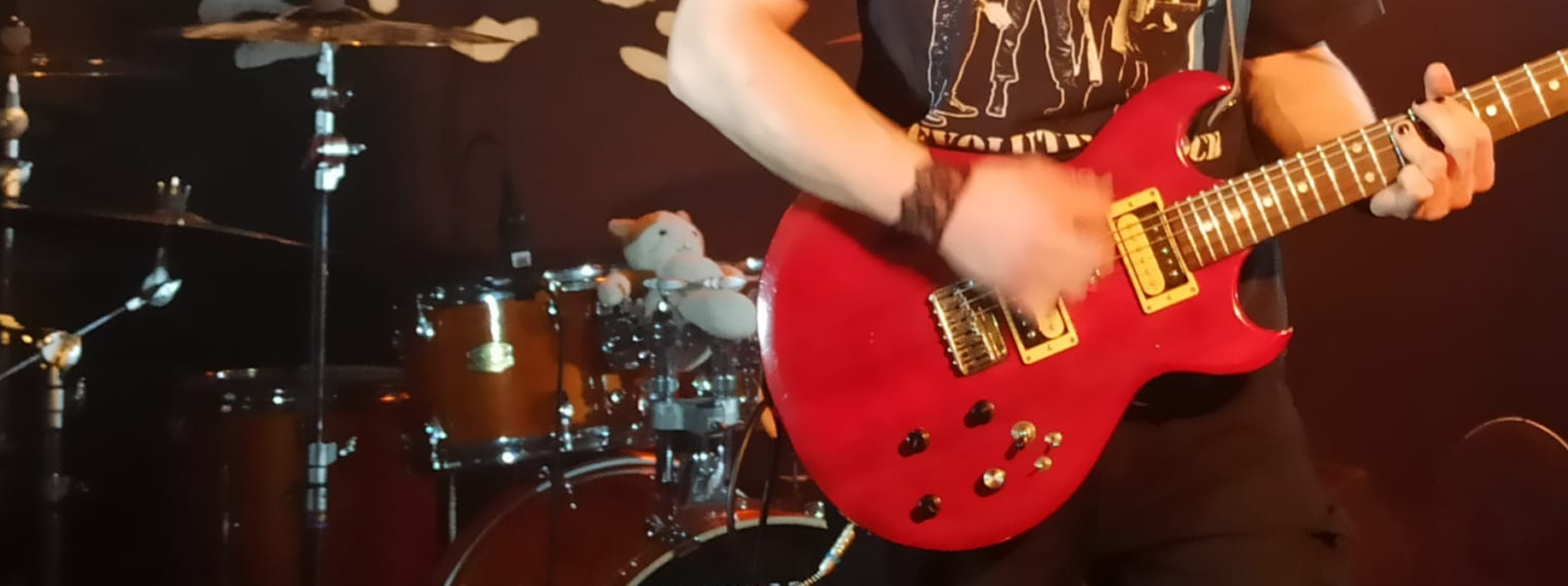
The first practically finished song that came after Die Anyway. I like the harmony section and the unusual structure. It could have been downtuned too, but I like pushing my voice higher in order to find more emotion.
Like a good majority of other songs, the lyrics were just what came up at the moment. I picture someone in an hospital room knowing death is near. Relatives try to offer support, but they are aggressively told to leave. The dying one cannot accept his fate ("get away, stay away"), but is desperate not to die alone ("come back again").
One of the more "metal" songs. Tricky to play live, but what I call the "orchestral" solos section during the bridge is one of my favorites. There probably were 4-5 different possible structures of the song before I settled on one. Organizing the riffs and playing with them was fun. I like finding structures for songs, it's kind of like a math problem you have to solve.
This new version has way more definition than the demo. When multiple guitars start to stack up, you can clearly listen to what each of them is playing.
It can be about giving chances to something you know you don't like again and again, only to end up every time with the same conclusion that it is not for you. All of that while creating doubts about yourself, as if it was your fault.
I remember writing the song after watching an episode of Little House on the Prairie. At first, I felt the structure did not make much sense, and that it was a "riff salad". I wanted to stop writing for the day, but one more melody came up in my head. It became the melodic section after the first solo, which is a very important part of the song. Absurd moral of the story: keep going just a little longer even if it doesn't make sense, because at some point it might.
I can feel the obvious Metallica influences in the first solo. The main lyric "when you die, you'll never be surprised" can be about someone doing so much evil that, when they are finally about to die (murder or suicide), they knew they deserved it.
I have been joking about the fact I have been doing vocals for this song for more than a year, and well... The first recordings did start in september of 2024.
At the time of writing it, I felt bored with making songs. It was hard to create something new that didn't sound like what I already did before. But when I started making this one, it became really exciting again.
I don't really remember how the main riff came to be, but I remember jamming ideas after coming back from a Dropkick Murphys concert. I felt inspired by the rhythm guitarist and wanted to make a huge song that I could play with the same energy that he had on stage. I found the first intro riff simple, but powerful enough.
For some reason, I associated the song with playing CSGO's Wingman mode , on the Lake map. There are some sound effects from the game in the song.
Since then, it has evolved into a "don't f*ck with me" song, and I especially like the final line: "Say what you want - You never know when I'll come back". It embodies the feeling of "yeah, I'm alone, and you can think whatever you want about it but I will keep going, and I will do it again".
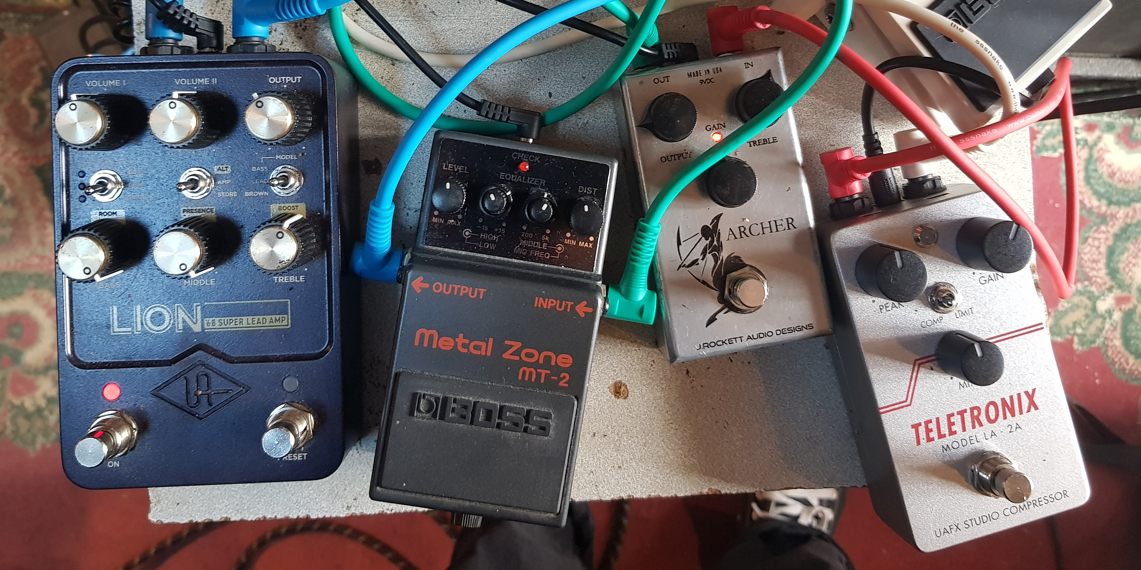
· Double tracking guitars is important in order to get a huge sound. I used two main rhythm guitar tracks panned to about 45% left and right.
· When recording solos or overlays, it's better to use a different guitar, as it makes the different parts more easily distinguishable.
· Keep focusing on singing on pitch. A really good take with lots of expression can easily be ruined if it's accidentally off key, even by a tiny bit, and I don't plan on using autotune to fix it (..I could, but it would be morally wrong). Playing a piano track that mimics the vocal melody while recording is an idea I already tried one or two times for Made Up, and I should clearly do it again for future recordings. Being comfortable on the pitch makes it easier to work on interpretation.
· Start practicing the solos earlier, playing them over and over again and polishing the performance.
· Start mixing earlier, then step away from it and come back again some days later to fix what sounds wrong. I don't feel like I had enough time to find the sound I really wanted.
· Start to train for vocal takes even earlier, and listen to the takes from the day before. This would help noticing the details (interpretation nuances, parts where i struggle to hit the right notes, etc) and see what I like and what I don't like to hear, so that I could focus more on fixing what I don't like.
· During the first week, while I was focusing on recording bass in the morning, I could have clearly spent more time practicing and/or recording vocals in the evening. I feel like I should have pushed myself more in the beginning, like I did in the end.

This was the first time I slept in the studio to get more stuff done. Some nights ended after vocal sessions, and started recording guitars right after breakfast the next day. Recording during the summer was hot.
Recording takes time, and I find it hard to keep up without doing anything else on the side. Seeing friends, having a workout break, or purely just doing something else helps a lot for getting motivation and energy back. I need to keep this in mind for next time.
As I mentioned, polishing the song takes time and I did not have enough time for that before I had to leave the studio. I would say that the versions produced at the end of august are about 85% complete. I would like to record some solos and vocals again, fine tune the mix and add more little details.
It was nice to practice singing more than usual, the usual being... not at all outside of rehearsals. I was consistent with doing vocal exercises before every recording session. I do feel like I became better at it. Still not entirely satisfied, but clearly miles away from how I used to sing 2 years ago.
I tend to see recording (especially rhythm guitars and bass) as a task that is different from composing and creating a song.
I like to think that a song can be released when its structure and composition are done (obviously), the instrumental and vocal performances are good and convey some kind of emotion, the production is good and nothing feels off. Even if the song feels finished early, it's good to let it evolve over some time, playing it live and finding new interesting ideas.
Rehearsing at ISAK made me find "the" sound of AKJ, and work towards something that represents me more.
Sometimes I find it hard to not make it sound like one guy singing in his bedroom. The bedroom aspect would work if these songs were lofi, cozy acoustic guitar songs with a deep and warm voice, and maybe I should try doing that. But these are meant to be energetic and raw songs, and most of the time I sing in a higher register.
I'm happy to have waited until I could sing better and knew how to record good instrumental takes. The playing can be good, but if it is recorded through a practice amp with poor audio convertors, then it will sound bad and will be hard to work with in a mix. I like the new cleaner sound I've obtained, not because it sounds more produced or polished, but because it represents a powerful live setting better.